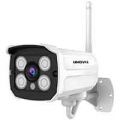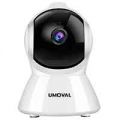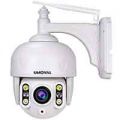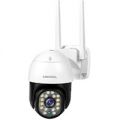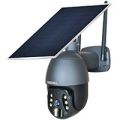Definition of DVR and NVR
These two are both abbreviations of English terms related to surveillance video recorders. Connected to the analog surveillance camera is a digital hard disk video recorder, referred to as DVR (Digital Video Recorder); connected to a network surveillance camera is a network hard disk video recorder, referred to as NVR (Network Video). Recorder).
Network Video Recorder, NVR for short, is an industrial computer system dedicated to the storage of network video that is highly similar to DVR.
DVR is an analog signal, connected to the BNC interface. NVR is a digital signal, connected to a network cable. DVR is a product that is gradually obsolete. The definition of coaxial analog signal is not high, the maintenance is inconvenient, and the equipment is redundant. In general, NVR will gradually devour the DVR market, and the construction and maintenance of network cable digital signals is convenient and efficient, and the use of cables is simpler. The equipment required to connect to the network has high compatibility and can be directly connected to exchange and connect various equipment. DVR will gradually be eliminated in the market.
The input video of NVR is based on TCP/IP network. And DVR generally refers to inputting video through CVBS, DVB, SDI, etc.
The Differences between DVR and NVR
(1) Different Technology
● DVR:
Also known as digital hard disk video recorder, it is a high-tech product that combines computer technology, network technology, digital video technology, traditional video and security technology.
● NVR:
Network video recorder, which is the storage and forwarding part of the network video surveillance system.
(2) Different Characteristics
● DVR:
It is a replacement product of DVD and video tape recorders. It can be used in power monitoring, bank security monitoring, building intelligence, home anti-theft monitoring and other fields.
● NVR:
NVR works with video encoders or network cameras to complete video recording, storage and forwarding functions.
(3) Different Functions
● DVR:
Convert analog audio and video signals into MPEG digital signals and store them on the hard disk (HDD), and provide functions corresponding to recording, playing and managing programs.
● NVR:
Its core function is the storage and forwarding of video streams. Compared with DVR, the function of NVR is relatively single. It does not have analog-to-digital conversion and encoding functions, and cannot work independently. It usually works with video encoder DVS or network camera IPC to complete video recording, storage and forwarding functions.
(4) Differences in System Integration
The performance of DVR and NVR is also very obvious. The DVR hard disk video recorder system is relatively closed and it is difficult to integrate with other systems. The NVR system is relatively open. Under the condition of ensuring data security, it can easily realize data transmission with other systems through a physical connection and matching the corresponding network protocol.
(5) NVR Simple Wiring Shows Advantages
In terms of integrated wiring, DVR is more obviously "powerless". If users want to add an analog surveillance camera, they need to reproduce the wiring, which is not easy in actual operation. However, NVR has a good performance in increasing monitoring points. Network surveillance cameras can rely on existing cables, avoiding the problem of repeated wiring, and only need to connect the network cable directly to the switch.
Because the DVR cable uses 75Ω coaxial cable, limited by the distance, the DVR cannot meet the long-distance transmission; and the network camera cable is a network cable, when long-distance transmission is required, optical fiber transmission can be used, and the optical fiber is not only anti-interference Strong ability, low signal attenuation during transmission, and higher security.
In addition, NVR can connect with IP cameras by wireless Wi-Fi, which is more convenient than DVR.
In a word, NVR is superior to DVR in all aspects, which is a trend of development.


